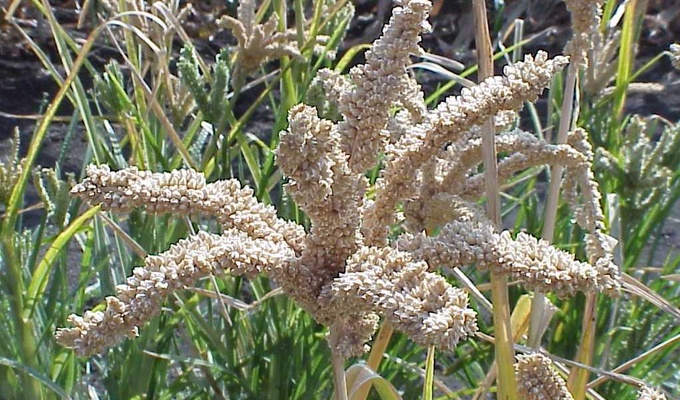Finger millet (Eleusine coracana), also known as ragi, is an annual cereal crop widely grown in the semi-arid regions of Africa and Asia, particularly in Ethiopia, Uganda, India, and Nepal. It is valued for its nutritional content, being rich in calcium, iron, dietary fiber, and essential amino acids. Finger millet thrives in poor soil conditions and is drought-tolerant, making it an important subsistence crop in regions with challenging climates. The seeds of finger millet are small and hard, with a high starch content, making them suitable for various food preparations.
In African cuisine, finger millet is a staple ingredient used to make porridge, commonly known as ugali in East Africa or besso in Ethiopia. The flour is mixed with water to form a dense, starchy meal that is served with vegetables or meat. In India, particularly in the southern states, finger millet flour is used to prepare dishes such as ragi mudde (a steamed dumpling), ragi dosa (a fermented pancake), and ragi roti (a flatbread). The grain is also used to make traditional beverages like ragi malt, a nutritious drink consumed for its health benefits.
In Nepali cuisine, finger millet is used to make dhido, a thick porridge often eaten with vegetables and curries. The grain is also fermented to produce tongba, a traditional alcoholic beverage.
